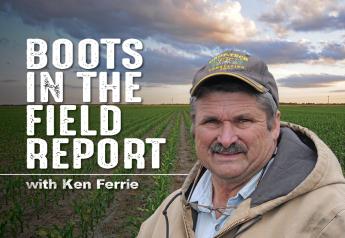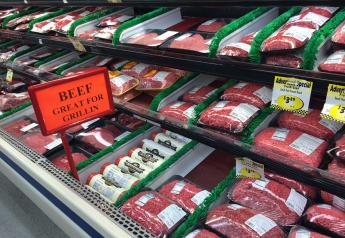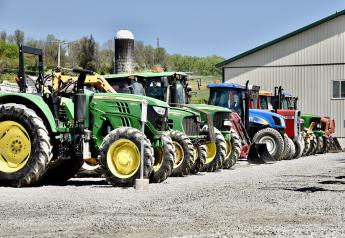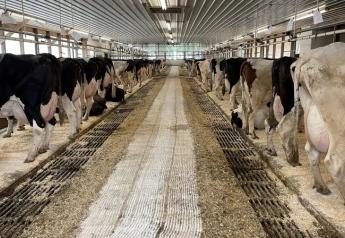Pro Farmer Evening Report: April 7, 2022

Click here to view weekly export sales/commitments charts and here for report details.
Check our advice monitor on ProFarmer.com for updates to our marketing plan.
EPA denies 36 small refinery biofuels waivers... The Biden administration on Thursday rescinded 36 refineries’ previously granted waivers from 2018 biofuel-blending requirements — but said it would not require the facilities to buy compliance credits to fulfill the quotas. EPA said the 36 previously granted exemptions were wrongly authorized because the RFS program itself did not directly cause any economic hardship suffered by the facilities. The agency said the new rejections were consistent with a 2020 decision by the 10th Circuit U.S. Court of Appeals. EPA said it would provide an “alternate compliance approach” so 31 previously exempted refineries can still “meet their new 2018 compliance obligations without purchasing or redeeming additional RFS credits.” The Biden administration is set to finalize blending quotas for 2020, 2021 and 2022 by June 3.
Conab cuts Brazil’s soybean crop, increases corn crop... Brazil’s soybean crop estimate was lowered to 122.4 MMT, down 340,000 MT from last month by Conab, Brazil’s crop estimating agency. It reduced Brazil’s soybean exports by 3.2 MMT from last month to 77 MMT. Last month, USDA cut Brazil’s soybean crop by 7 MMT to 127 MMT. A further reduction in USDA’s Brazilian soybean crop estimate is expected in Friday’s Supply & Demand Report.
Conab raised its estimate of Brazil’s corn crop to 115.6 MMT from 112.3 MMT last month. Much of that increase was a 36.3% jump in the safrinha corn crop estimate to 88.5 MMT. It also raised its corn export forecast by 2 MMT to 37 MMT.
Frost could have damaged Argentina’s soybean crop... The Buenos Aires Grain Exchange warned Argentina’s soybean production could fall below the current estimate of 42 MMT due to frosts over the past week. Frost this week came after cold temps at the end of March. Possible frost damage will be evaluated over the next few weeks and could affect the exchange’s soybean crop estimate. The exchange said 8.8% of the country’s soybeans were harvested. It did not warn of any possible changes to its corn production estimate of 49 MMT due to frost. Argentine farmers have harvested 17% of their corn crop. The exchange noted if weather conditions allowed, the sunflower harvest should wrap up within the next two weeks. It estimated the sunflower crop at 3.3 MMT.
Winter wheat drought area remains unchanged... The amount of U.S. winter wheat considered in drought conditions remained at 69% for the week ended April 5, according to the U.S. Drought Monitor. USDA rated winter wheat drought as 18% “moderate,” 34% “severe,” 16% “extreme” and 2% “exceptional.” Last week, USDA said winter wheat drought was 20% “moderate,” 32% “severe,” 16% “extreme” and 2% “exceptional.”
For HRW areas, the area considered abnormally dry/drought in Kansas dropped one point to 71%. Oklahoma (86%), Texas (95%), South Dakota (86%), Nebraska (99%) and Colorado (100%) had the same amount of land considered abnormally dry/drought as the previous week.
JP Morgan Chase: Be ready for a 40% commodities rally... Commodities could soar by as much as 40% if investors increase their investments in raw materials as an inflation hedge, according to JPMorgan Chase & Co. The bank advised there is an elevated need for inflation hedges. That means investors could distribute more than 1% of the total financial assets globally into longer-term commodity allocations. As a result, that “would imply another 30% to 40% upside for commodities from here.” The bank joins Goldman Sachs Group Inc., which has been bullish on raw materials as an inflation hedge. However, Goldman Sachs warned a global copper shock was underway.
Fed’s Bullard thinks interest rates should be raised to 3% to 3.25%... Federal Reserve Bank of St. Louis President James Bullard wants the Federal Open Market Committee to get interest rates to 3.0% to 3.25% in the second half of this year. Bullard, who supported a 50-basis-point hike at the March meeting, said it was clear that a higher interest rate is needed sooner. However, he noted that he didn’t want to prejudge the May meeting and would study any new data. Using the Taylor Rule as a guideline, he says the Fed may need to increase interest rates to about 3.5%. He explained that would mean the current rate is 300 basis points too low. Bullard predicts the economy will grow by 2.8% in 2022 and the unemployment rate will be under 3%.
Ukraine railcars with grain stuck at the Poland border... Some 1,100 railcars filled with grain are stuck near the main Ukraine/Poland border crossing, according to data from Ukraine’s state-run railway company. Reuters reported that those cars were part of the 24,190 railcars loaded with vegetable oil, iron ore, metals, chemicals and coal waiting to cross the border. About half the railcars were waiting near Izov, the main rail border crossing into Poland. Izov also serves as a gateway for reaching the Polish seaport of Gdansk. The reasons for backlog include the sheer volume of goods, shortages of railcars and staff and infrastructure issues including the railways being a different gauge. A Ukraine rail official said about 500 cars per day could cross the border at Izov, meaning there’s nearly a three-week backlog. However, he said other crossings weren’t backed up. Railway officials are working to increase the number of railcars with grain crossing into Poland, Romania, Hungary and Slovakia to 1,100 per day within three months.
Congress passes bills to punish Russia... Congress passed two bills on Thursday to punish Russia for its Ukraine invasion. One bill would ban U.S. imports of Russian oil, gas and coal. The bill would put into law an executive order that President Joe Biden previously issued. The other bill would remove “most favored nation” trade status for Russia and its close ally Belarus. U.S. law mandates that Congress approve the change in Russia and Belarus’ trade status. The trade bill allows the Biden administration to raise tariffs on imports from Russia and Belarus. Biden is expected to sign both bills.
Edible oils prices increase... Russia’s invasion of Ukraine has sparked a global shortage of sunflower oil that has drastically raised the price of other edible oils, the Wall Street Journal reported. Global edible oil prices were already high before the invasion due to crop issues in Canada and South America. Compared to a year ago, rapeseed oil increased by 72% by the end of March. Palm oil rose 61%. Sunflower oil prices were up 44%. Soyoil is up 41%. Olive oil is 15% higher. Except for olive oil, all the rest hit record high prices in March.
China temporarily bans imports from three Brazil meat plants... China’s General Administration of Customs has suspended imports from two Brazilian beef plants and one poultry producer, according to a statement on its website. Imports from a JBS beef plant in Goias, a Marfrig beef plant in Mato Grosso and an unnamed chicken plant in Sao Paulo owned by Zanchetta were banned. The bans will start April 8 and lasts one week. No reason for the ban was given.







